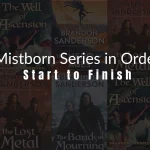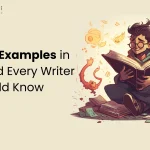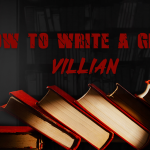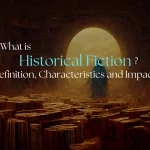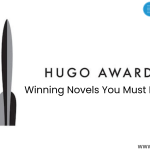Have you ever come across a brief, clever statement that caused you to pause and reflect? It’s an epigram! In only a few words, these succinct but powerful remarks provide knowledge, comedy, or profound understanding. For generations, authors have employed epigrams to improve narrative, stimulate imagination, and convey important ideas.
However, what gives them such strength? since they remain with you! Epigrams are a great way to improve your writing, whether they inspire you, make you giggle, or alter your viewpoint.
We’ll look at 30 epigram examples in this post to help you get inspired and motivated to write.
You may also like: StoryOrigin Review: Everything You Need to Know
The Role of Epigrams in Literature and Writing
Epigrams date back to ancient Greece and Rome, where poets like Martial and Catullus used them to deliver clever and sometimes biting commentary. Over time, writers from Shakespeare to Wilde to modern-day authors have used epigrams to inject wit and wisdom into their works.
An epigram can enhance your writing by:
- Providing a memorable opening or closing line
- Making a philosophical or humorous statement
- Adding emotional weight to a scene
Famous authors like Oscar Wilde, Dorothy Parker, and Mark Twain were masters of the epigram, using them to make sharp observations about life, society, and human nature.
You may also read: Book Promotion Mistakes to Avoid: What Authors Need to Know
How to Use Epigrams in Your Writing
Want to incorporate epigrams into your work? Here’s how:
- Enhance storytelling: Use an epigram at the beginning of a novel or chapter to set the tone.
- Make a point in essays and blogs: A sharp epigram can emphasize your argument.
- Develop original epigrams: Try crafting your own by distilling big ideas into small, impactful phrases.
You may also read: About the Author Sudha Murthy Books: Inspiring Life and Literary Legacy
You may also like: Top 50 Famous Dragon Names from Mythology, Books, and Movies
30 Examples of Epigrams to Inspire Writers
- “I can resist everything except temptation.” – Oscar Wilde
- “It is better to be hated for what you are than loved for what you are not.” – André Gide
- “A room without books is like a body without a soul.” – Marcus Tullius Cicero
- “All animals are equal, but some animals are more equal than others.” – George Orwell
- “Not all those who wander are lost.” – J.R.R. Tolkien
- “Writing is easy; you just open a vein and bleed.” – Red Smith
- “The worst enemy to creativity is self-doubt.” – Sylvia Plath
- “You can make anything by writing.” – C.S. Lewis
- “Write drunk, edit sober.” – Ernest Hemingway
- “Start writing, no matter what. The water does not flow until the faucet is turned on.” – Louis L’Amour
- “Writing is 1% inspiration and 99% avoiding the internet.” – Anonymous
- “Being a writer is like having homework every day for the rest of your life.” – Lawrence Kasdan
- “A synonym is a word you use when you can’t spell the other one.” – Baltasar Gracián
- “The road to hell is paved with adverbs.” – Stephen King
- “I love deadlines. I love the whooshing sound they make as they fly by.” – Douglas Adams
- “Writing is 1% inspiration and 99% avoiding the internet.” – Anonymous
- “Being a writer is like having homework every day for the rest of your life.” – Lawrence Kasdan
- “A synonym is a word you use when you can’t spell the other one.” – Baltasar Gracián
- “The road to hell is paved with adverbs.” – Stephen King
- “I love deadlines. I love the whooshing sound they make as they fly by.” – Douglas Adams
- “A writer is someone for whom writing is more difficult than it is for other people.” – Thomas Mann
- “Ideas are like rabbits. You get a couple and learn how to handle them, and pretty soon you have a dozen.” – John Steinbeck
- “You can’t wait for inspiration. You have to go after it with a club.” – Jack London
- “If you want to change the world, pick up your pen and write.” – Martin Luther
- “What is written without effort is in general read without pleasure.” – Samuel Johnson
- “Your first draft is just you telling yourself the story.” – Terry Pratchett
- “Write what should not be forgotten.” – Isabel Allende
- “If there’s a book you want to read, but it hasn’t been written yet, then you must write it.” – Toni Morrison
- “The difference between the right word and the almost right word is the difference between lightning and a lightning bug.” – Mark Twain
- “Don’t tell me the moon is shining; show me the glint of light on broken glass.” – Anton Chekhov
- “A word after a word after a word is power.” – Margaret Atwood
- “No tears in the writer, no tears in the reader.” – Robert Frost
- “There is no greater agony than bearing an untold story inside you.” – Maya Angelou
- “We write to taste life twice, in the moment and in retrospect.” – Anaïs Nin
- “To survive, you must tell stories.” – Umberto Eco
You may also read: How to publish a Book? | Publish Your Book | BlueRoseOne
Conclusion
Little yet powerful are epigrams! They may enhance your writing with depth, humor, and insight, which will help your words stick in readers’ minds. Using epigrams in your writing can improve your narrative abilities, whether you create your own or utilize them as inspiration.


